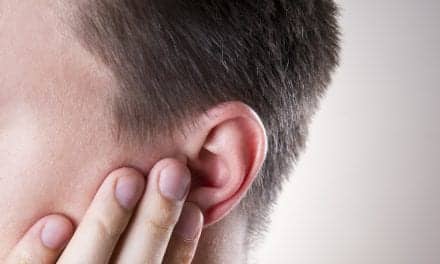The unrelenting “phantom” buzzing, ringing, clicking, or other sounds described by people experiencing tinnitus symptoms can range from mild to insufferable, and can arise seemingly overnight, with little advance warning. The symptoms are often accompanied by hearing loss. According to the American Tinnitus Association (ATA), some 50 million people in the United States experience tinnitus, and tinnitus is one of the leading service-related disabilities among US veterans, caused by what is known as traumatic noise exposure from military weaponry or equipment.
More recently, people with lingering COVID-19 infections—known as “long-haulers” for the constellation of symptoms that can persist for weeks or months after testing positive for the virus—have reported tinnitus as a long-term complication of the virus. As was widely reported in the media, the 65-year-old Texas Roadhouse Founder Kent Taylor died after experiencing severe post-COVID tinnitus. A 2021 research review published in the International Journal of Audiology led by Professor Kevin Munro and PhD researcher Ibrahim Almufarrij found 56 studies identifying an association between COVID-19 and auditory/vestibular problems; pooling data, they found the prevalence of tinnitus to be 14.8% and hearing loss 7.6%. Acknowledging that further research is needed, Munro is currently heading a UK-based study investigating the potential long-term impact of COVID-19 on hearing. Additionally,
The British Tinnitus Association (BTA) has reported a 256% increase in people accessing its services via web chat between May-December 2020, compared to the same period in 2019, according to an article in The Guardian.
Related Article: Stand Out with Tinnitus Care and Multiple Financing Options
Given the subjective nature of tinnitus, treatment can be a challenge. People experiencing tinnitus may visit their primary care physician to rule out any underlying conditions potentially causing the tinnitus symptoms, like an earwax blockage, virus, or side effects from medication. A GP may then make a referral to an otolaryngologist or an audiologist for additional diagnosis. The provision of hearing aids has been shown to be the most effective treatment for most people with tinnitus. Given the potential out-of-pocket costs, offering patients a financing option like Ally Lending can help make their care more manageable.
Though there’s no “cure” for tinnitus, there are a number of treatments that may help people cope with the symptoms, according to the National Institute on Deafness and Other Communication Disorders (NIDCD). These include cognitive behavioral therapy (CBT) and Progressive Tinnitus Management (PTM); tinnitus masking devices worn in the ear; tabletop sound generators; neural stimulation devices that deliver a broadband signal embedded in music, and hearing aids or cochlear implants to treat underlying hearing loss.
Related Article: Toward Standardization of Basic Tinnitus Services by Audiologists
According to Grant Searchfield, PhD, a leading expert on tinnitus and an associate professor of audiology and director of the Hearing and Tinnitus Clinic at the University of Auckland, as many as 80% of patients with tinnitus symptoms may also have hearing loss. He recommends evaluating patients thoroughly for the degree of their loss and then developing a framework for their therapy options, utilizing the clinic’s Sound Therapy and Aural Rehabilitation for Tinnitus (START) program.
Audiologists should offer assessments and provide basic intervention for tinnitus through hearing aids and other devices, the provision of accurate tinnitus-care information, and/or referrals to other providers for tinnitus-related services.
Additionally, there are a myriad of new tinnitus apps offering sound therapies to help alleviate tinnitus symptoms that are accessible by smartphone. The Diapason app, created by the French company Immersive Therapy, offers four therapy modes and helps users “find and recreate the exact frequency and bandwidth of their specific tinnitus.” Tinnibot, developed by two hearing researchers, provides a suite of behavioral-based tools to help with tinnitus management. Pure Tinnitus Group Coaching offers monthly Zoom workshops with “evidence-based tinnitus management techniques” combining relaxation, CBT, and sleep habits, taught by audiologist Ben Thompson, AuD. And the Internet-based Cognitive Behavioral Therapy (iCBT) for Tinnitus is a free, therapeutic tool developed by researchers at Royal Surrey County Hospital that incorporates CBT techniques into audiological care.
Though tinnitus may seem like an insufferable syndrome, there are a variety of treatments that may be utilized to help manage the experience, if other causes have been ruled out. Meeting with an audiologist to formulate a treatment plan is a great first step, and being able to budget the cost into easy, monthly payments with a financing option like Ally Lending helps take the stress out of the process.
Stefani Kim is associate editor of The Hearing Review and wrote this article for the HR enewsletter sponsored by Ally Lending.





